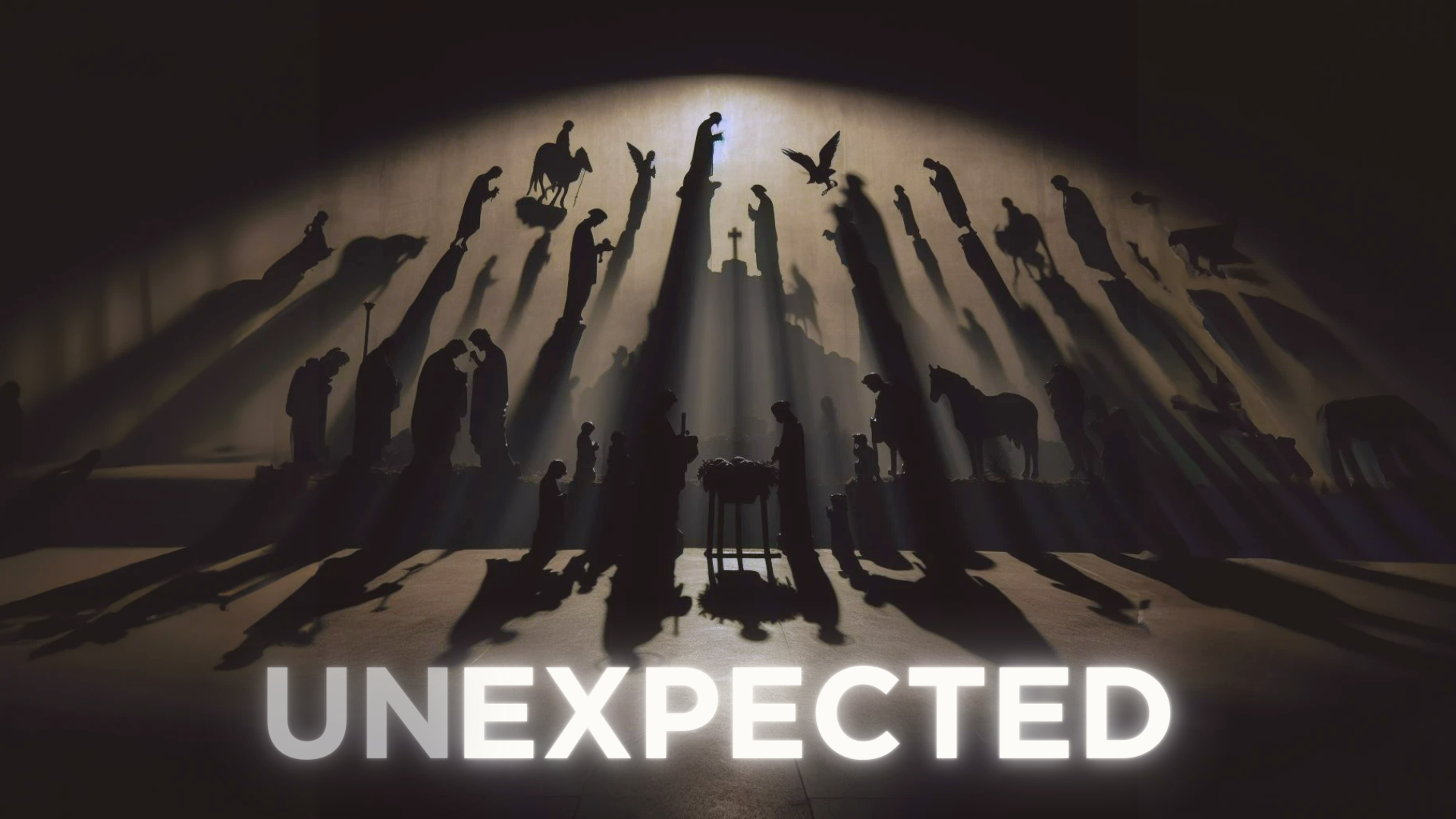“Why me?” - Joseph
In this series, we take a closer look at the Nativity story through the lens of each character to see how God works in unexpected ways through unexpected circumstances.
Scripture: Matthew 1:18-25
Do you remember those old cartoons of how the character would have a little devil on one shoulder and an angel on the other, each clamoring for his attention and trying to tell him what to do? When the unexpected happens in life, it can be hard to know how to react and sometimes it feels like choosing between what our head is telling us versus what our heart is telling us. Like two opposing voices on either side of us, these myriad voices can make choosing the right thing more confusing and cause us to question what the “right” choice is anyway and how we define what is truly “right”? In the Bible, the closest word you’ll usually find is “righteousness” or “just”. Perhaps what is most interesting about these words is how Matthew uses them to describe Joseph’s actions in our story.
According to Old Testament law, the “right” thing for Joseph would be to make a public demonstration out of Mary which would have included her shame and possible harm. But thankfully, Joseph doesn’t choose to do that. Instead, Joseph chooses to do what would be considered against the law. Yet despite this, Matthew, writing to a Jewish audience, declares Joseph’s actions as “just”. This would have been extraordinary for Matthew’s audience because it shows us how God’s justice is not so rigid. Whereas we see right and wrong in legalistic terms and adherence to written law, God sees justice in view of his own character which is saturated in love. This is important because it points to the fulfillment of what God promised in Jeremiah 31:33, “For this is the covenant that I will make with the house of Israel after those days, declares the LORD: I will put my law within them, and I will write it on their hearts. And I will be their God, and they shall be my people.” In other words, this is a justice that is not dependent on one’s context.
Another way in which Matthew redefines justice for us is in how he describes Joseph’s actions despite his own personal feelings. In verse 20 we read how Joseph “considered” his course of action and how he should react to Mary’s news. The word “considered” used here in Greek denotes not just a simple ponderance but rather a deep rumination born out of one’s hurt. In simpler terms, Joseph is unbelievably devastated at the news. In the blink of an eye, his life goes from planning his honeymoon to wondering how he can save his ex-fiance from physical harm, lest the whole village hears the news and begins to pick up stones. Yet again, despite what is going on inside of him, Joseph does not let his emotions of betrayal define his actions. Instead, he chooses to be faithful still by divorcing Mary quietly. This too is a demonstration of how God operates as he doesn’t dole out justice based on his emotions or how many times we betray his trust. Instead, God sends his son still to once again fulfill the law and save us from our demise.
While many of us would not fault Joseph for merely doing what the letter of the law told him or listening to his own emotions, we can be thankful that, like Joseph, God too does not follow the letter of the law but is more interested in its fulfillment. As the story emphasizes in verse 22, “All this took place to fulfill what the Lord said.” It can be said that as an important theme throughout the book of Matthew, fulfillment is what it is ALL about. We all long for it and seek it in our everyday decisions with the hope of fulfilling it. The same is true of the story of the Bible. From beginning to end, the Bible is all about the fulfillment of mankind which is founded in a deep relationship with God based on love. It was never about us simply meeting expectations or teaching us to follow our hearts, as we so often hear in our modern culture. As the story of Jesus’ birth shows us, it’s all about finding fulfillment in what God has done for us as he stays faithful despite our sins. For many, perhaps this is the most unexpected and yet welcome gift of all as we look back on a difficult year with unfortunate decisions. No matter what year you’ve had, the story of Joseph teaches us how God is faithful still and he isn’t going anywhere.
Study questions:
How do you make decisions in life? What influences them?
How do you define the words “righteousness” and “justice”?
How does this story change your perception of making “right” decisions?
What does this story teach us about how God makes decisions concerning us?
What does it mean to you to find fulfillment in life?

